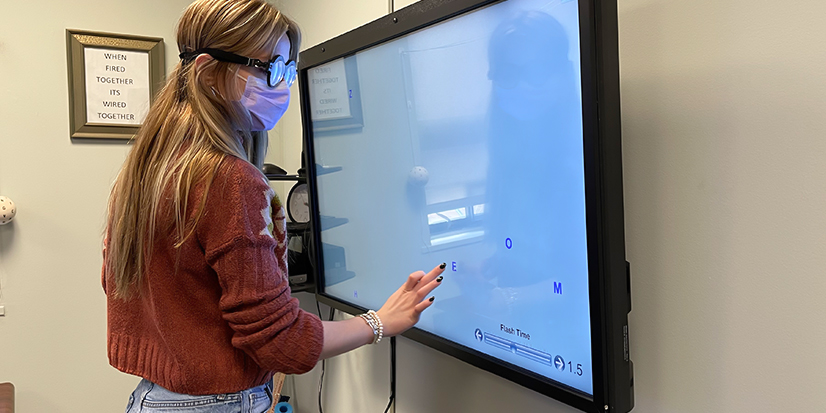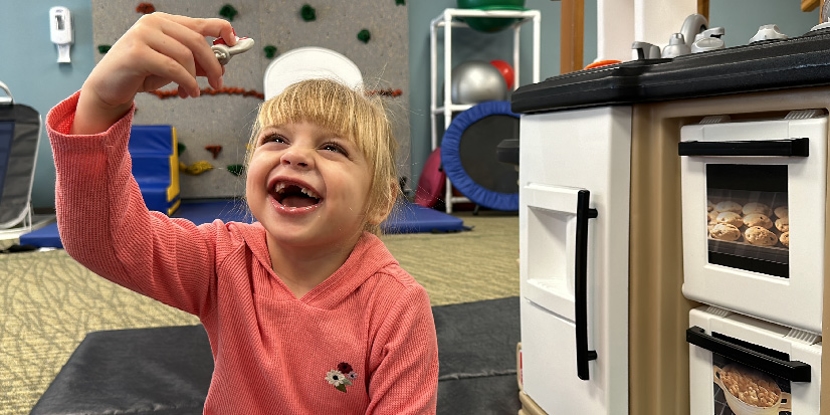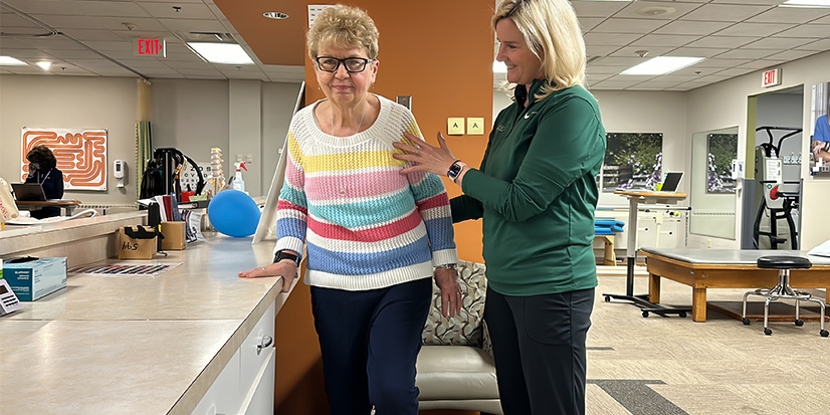Ava R.
- Author: Ava R
- Date Submitted: Jun 7, 2023
- Category: Spotlights


At six months old, Ava suffered a seizure and was diagnosed with a condition that impacts the eyes: nystagmus. This is a neurological disorder that impacts the eyes and their function. It causes the eyes to make rapid, uncontrollable movements. People with nystagmus tend to have difficulties with depth perception, may struggle to identify objects or people, and experience problems with balance and night vision.
In Ava’s case, her nystagmus meant she only had 40 percent depth perception and, double vision, exacerbated when tired or stressed. There is no cure for nystagmus and so Ava learned to cope with these challenges. That was until she and her family learned about vision therapy from a neurologist.
Ava was immediately referred to the Allied Services Scranton Luger Rehab Center and enrolled in vision therapy with Stephanie Maciolek, OTR/L.
“The aim of vision therapy is to enhance visual skills —eye-tracking, focusing, convergence, eye-hand coordination, visual processing speed, and more. Using specialized goggles and technology, personalized balance, and tracking exercises, I worked with Ava to reduce her symptoms and improve her ability to comfortably perform everyday tasks such as reading,” says Stephanie.
Ava had one very important goal; to get her driver’s license. This hadn’t been possible previously due to nystagmus. Ava credits her therapists with giving her teenage independence; they’re the reason she can now drive.
Vision therapy also helped Ava to excel in school. Ava was also not given accommodations until she came to Allied Services. Nystagmus makes it harder to read. The words are harder to make out because nystagmus impacts vision. This is a neurological condition, it doesn’t impact Ava’s intelligence, but unfortunately, her grades were impacted because she simply couldn’t read as fast as everyone else. She literally couldn’t see the words in the same way.

Now, however, as Ava finishes her first year of college, she has the accommodations she needs, and she is thriving. She practices her exercises independently to maintain the progress she has achieved, and she has coping skills when she is tired or notices her symptoms flaring up.
Vision therapy has allowed Ava to live an independent life, improving her depth perception by 50%. Ava can now prevent this disorder from progressing again. She was given a chance at a life uninhibited from vision issues.
Vision Therapy at Allied Services
To learn more about vision therapy call 570.348.1360 or click here.



